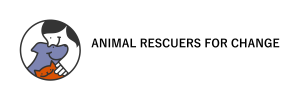What You Can Do
Change starts with us.
California has long been recognized for its compassionate and progressive approach to social issues. However, the current state of animal welfare, particularly the three year high euthanasia rate and the highest in the US numbers of abandoned animals, calls for urgent attention and action.
What can you do as a Californian Constituent for a Change? Many of us feel lost and powerless when confronted with the daily pleas from shelter volunteers and the heart-wrenching social media posts of beautiful animals placed daily on death row.
Many Californians are concerned but do not believe they can affect changes and not sure they can exactly do. So we rarely take any steps to correct or affect change.
In fact, you can make a significant difference—your voice truly matters. Ordinary constituents have the power to influence policy-making by speaking up and reaching out to elected officials and policymakers.
Elected officials have a responsibility to listen to the concerns of their constituents, making it crucial for us to voice our opinions, remain active, and be registered voters.
When fewer people express their concerns, legislators may feel less pressure to produce effective legislation, establish fair rules, or allocate funding to address critical community issues.
Unfortunately, animal welfare issues often lack strong advocacy voices, while special interest groups work to maintain the status quo, preventing the passing of beneficial for animals legislation in Congress.
Consequently, California suffers from vague laws, inconsistent enforcement, and low compliance standards regarding animal welfare with many loopholes that are used by breeders, and illegal animal sellers.
The process of making policies can be complicated. Lawmakers often pay more attention to lobbyists—groups that are organized, well spoken, and have the resources to talk to elected officials often.
What WE Can DO: We have the power to make a difference by expressing your concerns directly to policymakers. The more constituents that voice their concerns, the clearer it becomes to policymakers that the issue is important to the wider community.
As a registered voter, you have the right to address officials and request their attention to your concerns. Your voice is the catalyst for a meaningful change.
You can:
Be a Constituent: it is vital that you are an active registered voter. Many lawmakers lack specific strategies for addressing animal control issues but are eager to listen to input from their constituents.
- Contact Elected officials by email, phone, mail
Maintain professionalism and courtesy in all communications.
- Avoid using offensive language.
- Refrain from personal attacks or derogatory remarks directed at legislators.
- Ensure proper grammar, punctuation, and complete sentences and paragraphs.
- Address officials appropriately, such as Councilman Smith or Mayor Jones.
- Format emails identically to letters.
- Include your full name and registered voting address for identification purposes
- Requests and Schedule a meeting with officials of various Levels to express your concerns:
- State Level Legislators ( Assembly and Senate)
- Local Legislators ( city council reps, shelters administrations)
- Meet Local representatives, attend city board meetings, advocate for local ordinances and measures that can help with shelter’s overpopulation: advocate for your city to enact local spay-neuter ordinances, breeding/licensing enforcement requirements, while also limiting the number of litters any animal can have per year, request city to have low-cost spay-neuter for residents
- Find Local Shelter Volunteers, Networker groups ( can search by shelter name, each shelter has a support communities, that network animals):
- Help sharing posts about animals at risk of euthanasia ( often time just one share can help save a life)
- Reach out within your community, friends, encourage them to contact legislators. The more constituents reach out regarding their concerns – the more likely positive changes can be enacted.

